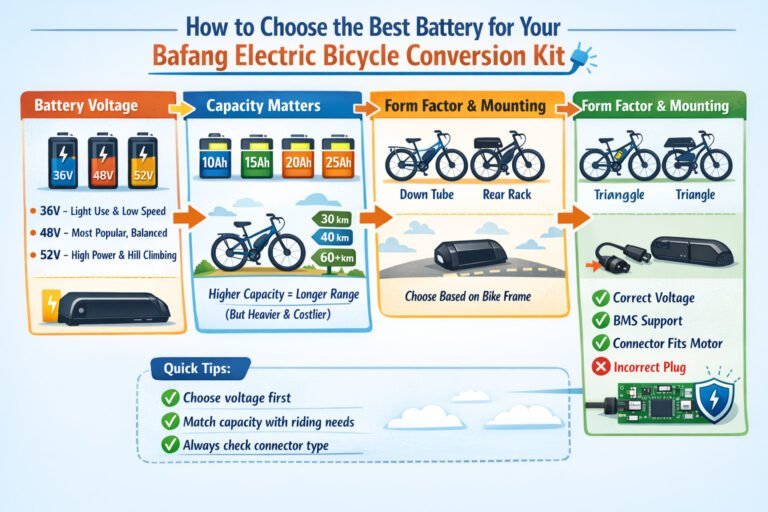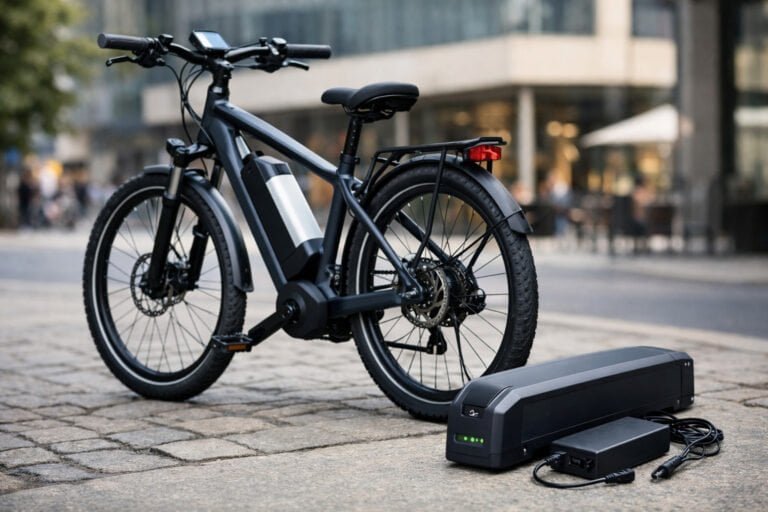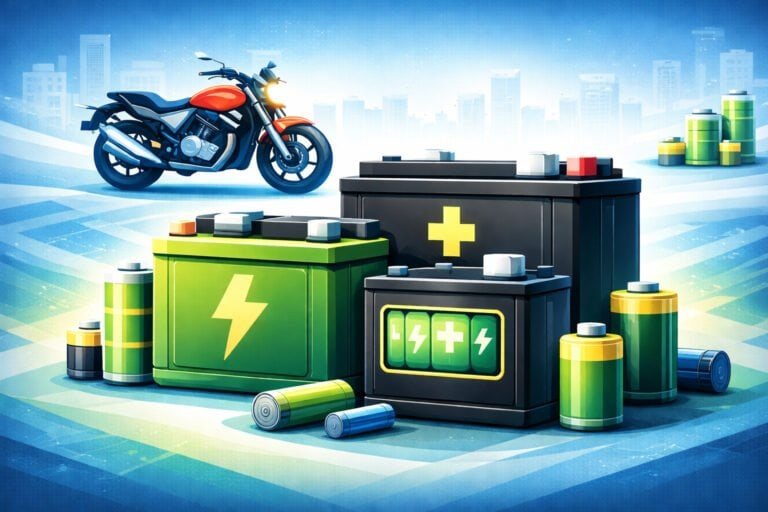Les véhicules à guidage automatique (AGV) ont révolutionné la logistique et la fabrication modernes en automatisant les tâches de transport répétitives dans les entrepôts, les usines et les centres de distribution. Cependant, le cœur de tout système AGV est son batterie-un élément crucial qui détermine la durée de fonctionnement, la sécurité, la fiabilité et l'efficacité globale du système.
Le choix de la bonne batterie pour AGV n'est pas seulement une décision technique, mais un investissement stratégique qui a un impact sur les coûts opérationnels, les calendriers de maintenance et le temps de production. Dans cet article, nous fournissons un guide complet sur la sélection de la batterie idéale pour les AGV, en tenant compte des types, des spécifications, des besoins d'application et des fournisseurs de confiance tels que Dongguan Yizhan Electronic Technology Co. Ltd.

Pourquoi le choix de la bonne batterie AGV est-il important ?
La batterie d'un AGV est plus qu'une simple source d'énergie. Elle définit le système :
-
Heures de fonctionnement: Une plus grande autonomie de la batterie signifie moins d'interruptions.
-
Efficacité de la charge: Influence sur la rapidité avec laquelle les AGV peuvent reprendre le travail.
-
Performances en matière de sécurité: Affecte le risque d'incendie, la gestion thermique et la stabilité chimique.
-
Coût total de possession (TCO): La bonne batterie minimise la maintenance, le remplacement et les temps d'arrêt.
Types de batteries AGV les plus courants
Les différents AGV nécessitent des batteries différentes en fonction de leur taille, de l'intensité de l'utilisation et de l'environnement opérationnel. Les principaux types de batteries utilisés dans les applications AGV sont présentés ci-dessous :
1. Batteries plomb-acide
-
Pour: Coût initial moins élevé, technologie éprouvée, facilité d'approvisionnement.
-
Cons: Plus lourd, durée de vie plus courte, exigeant une maintenance, nécessitant une ventilation.
-
Cas d'utilisation: AGV de base dont les exigences en matière de temps de fonctionnement sont faibles ou modérées.
2. Batteries au lithium-ion (Li-ion)
-
Pour: Haute densité énergétique, charge rapide, longue durée de vie, peu d'entretien.
-
Cons: Coût initial plus élevé (mais coût à long terme moins élevé).
-
Cas d'utilisation: La plupart des AGV modernes, en particulier dans les opérations 24/7 et les entrepôts automatisés.
3. Phosphate de fer lithié (LiFePO4)
-
Pour: Stabilité thermique supérieure, longue durée de vie (2000-6000+ cycles), chimie sûre.
-
Cons: Densité énergétique légèrement inférieure à celle du NMC, coût plus élevé que celui du plomb-acide.
-
Cas d'utilisation: AGV dans des environnements exigeants, à haut débit, nécessitant fiabilité et sécurité.
4. Hydrure métallique de nickel (NiMH)
-
Moins courant aujourd'huiLe Li-ion a été remplacé par le Li-ion en raison des limitations de poids et d'efficacité énergétique.
Facteurs clés à prendre en compte lors du choix d'une batterie pour AGV
Le choix de la bonne batterie AGV implique d'analyser à la fois spécifications techniques et besoins opérationnels. Les facteurs les plus importants sont présentés ci-dessous :
1. Tension et capacité
-
Adapter la tension de la batterie (par exemple, 24V, 36V, 48V, 72V) à la conception de l'AGV.
-
La capacité (Ah ou Wh) détermine la durée pendant laquelle l'AGV peut fonctionner avant d'être rechargé.
2. Cycle de vie
-
Une durée de vie plus longue signifie moins de remplacements et des coûts à long terme moins élevés.
-
Les batteries LiFePO4 peuvent durer 4 à 5 fois plus longtemps que les batteries plomb-acide.
3. Temps et méthode de chargement
-
La charge rapide minimise les temps d'arrêt des AGV.
-
Vérifiez si votre système AGV utilise :
-
Frais d'opportunité (pendant de brèves périodes d'inactivité),
-
Remplacement de la batterieou
-
Bornes de recharge automatisées.
-
4. Système de gestion de la batterie (BMS)
Une GTB intelligente est essentielle pour :
-
Surveillance de la tension, du courant et de la température
-
Équilibrer la performance des cellules
-
Protection contre la surcharge/décharge
-
Garantir un fonctionnement sûr et efficace
5. Facteur de forme et poids
-
La taille et le poids de la batterie doivent correspondre aux spécifications de conception de l'AGV.
-
Les options Li-ion offrent une densité énergétique plus élevée dans un encombrement réduit.
6. Tolérance de température
-
Les batteries doivent fonctionner efficacement dans la plage de température de votre entrepôt ou de votre usine.
-
Le LiFePO4 fonctionne bien même dans des environnements à haute température.
7. Certifications et normes de sécurité
S'assurer que la batterie est conforme à :
-
UN38.3 (sécurité des transports)
-
IEC/EN 62133
-
UL, CEou CB normes
-
Pour les marchés européens, la nouvelle Règlement de l'UE sur les batteries (UE) 2023/1542
8. Exigences en matière de maintenance
-
Les batteries au plomb-acide doivent souvent être contrôlées au niveau de l'électrolyte.
-
Les batteries Li-ion et LiFePO4 ne nécessitent pas d'entretien et sont idéales pour les installations automatisées.
Pourquoi les piles au lithium dominent-elles les applications AGV en 2025 ?
Grâce à leurs performances avancées et à leur profil de sécurité, les batteries lithium-ion et lithium-phosphate de fer sont devenues le choix de prédilection pour les AGV. En voici quelques-unes :
-
Longue durée d'utilisation et charge rapide: Idéal pour les entrepôts fonctionnant 24 heures sur 24 et 7 jours sur 7.
-
Peu d'entretien: Pas besoin d'arrosage ni de contrôle du niveau d'acide.
-
Conception modulaire: Facilement configurable en fonction de la tension et de la capacité requises.
-
Intégration intelligente de la GTB: Permet la surveillance à distance et la maintenance prédictive.
Considérations sur les batteries en fonction de l'application
Tous les AGV ne sont pas égaux. Voici comment les besoins en batteries varient selon le type d'AGV :
1. Remorquage des AGV
-
Requièrent un couple élevé et une longue durée de fonctionnement.
-
Meilleure batterie : LiFePO4 haute capacité avec recharge rapide.
2. Chargement unitaire AGV
-
Transporter des palettes ou des charges lourdes.
-
Exigent une tension et une fiabilité constantes.
-
La meilleure batterie : Li-ion avec une durée de vie élevée et un boîtier robuste.
3. Chariots élévateurs AGV
-
Remplacement des chariots élévateurs manuels.
-
Il doit être capable d'accélérer, de soulever et de freiner fréquemment.
-
Meilleure batterie : batterie lithium intelligente équipée d'un BMS avec décharge de courant améliorée.
4. Mini AGVs / AMRs
-
Nécessitent des piles compactes et légères.
-
Meilleure batterie : modules lithium-polymère haute densité ou LiFePO4 compacts.
Principaux fabricants chinois de batteries pour AGV à prendre en considération
✅ Dongguan Yizhan Electronic Technology Co, Ltd.
Avec plus de 12 ans d'expérience dans la fabrication de batteries au lithium, Yi Zhan est un fournisseur de batteries AGV de confiance :
-
Batteries intelligentes intégrées au BMS
-
Solutions d'alimentation électrique personnalisées pour AGV
-
Modules LiFePO4 et Li-ion haute performance
-
Certification complète pour l'exportation mondiale
Pourquoi choisir First Power pour les batteries AGV ?
-
Fabrication certifiée ISO
-
Une capacité de R&D étendue
-
Durabilité éprouvée dans les centres logistiques mondiaux
-
Un support technique réactif
Cependant, First Power se distingue par ses solutions d'alimentation personnalisables et intelligentes pour AGV.-spécialement pour les petites et moyennes entreprises qui recherchent la flexibilité et la fiabilité à long terme.
Étude de cas : Amélioration de l'efficacité des AGV grâce aux batteries Yizhan
Une importante société d'automatisation d'entrepôts en Europe a remplacé les batteries au plomb par des batteries FirstPower LiFePO4 pour l'ensemble de son parc de chariots élévateurs. Résultats :
-
Durée d'exécution augmentée de 48%
-
Réduction des temps d'arrêt grâce à 65%
-
Les remplacements de batteries ont diminué de 70% par an
-
Économies annuelles : Plus de $120 000 en maintenance et en main d'œuvre
Questions à poser à votre fournisseur de piles
Avant de passer votre commande, posez les questions suivantes :
-
La batterie peut-elle être adaptée à notre modèle d'AGV ?
-
Quelle est la durée de vie nominale de la batterie dans des conditions d'utilisation réelles ?
-
Quelles sont ses certifications ?
-
Une assistance technique est-elle disponible pour l'intégration ?
-
La batterie est-elle équipée d'un système de gestion intelligent (BMS) pour la surveillance à distance ?
-
Quelles sont les conditions de garantie et les politiques de remplacement ?
Tendances futures de la technologie des batteries pour AGV
Avec l'évolution du secteur, la technologie des batteries AGV va continuer à s'améliorer. Tendances à surveiller :
-
Batteries à semi-conducteurs: Une plus grande sécurité, une densité énergétique encore plus élevée.
-
Chargement sans fil: Réduit l'intervention humaine.
-
BMS alimenté par l'IA: Analyse prédictive pour réduire les pannes non planifiées.
-
Batterie en tant que service (BaaS) modèles : Louer les batteries au lieu de les posséder.
Réflexions finales
Le choix de la bonne batterie pour votre AGV est une décision critique qui a un impact sur l'efficacité de l'automatisation, les coûts d'exploitation et la sécurité. Grâce à la technologie moderne des batteries au lithium, en particulier les batteries LiFePO4 et systèmes intelligents équipés de BMS-vous pouvez faire en sorte que votre flotte d'AGV fonctionne plus longtemps, se recharge plus rapidement et soit plus performante.
En partenariat avec des fabricants expérimentés tels que Yi Zhan garantit non seulement la qualité, mais aussi l'assistance d'experts pour l'intégration, la personnalisation et l'évolutivité future.
Si vous souhaitez mettre à niveau votre système de batterie AGV ou construire un nouveau parc automatisé, contactez Yi Zhan dès aujourd'hui pour découvrir des solutions de batteries intelligentes et performantes adaptées aux besoins de votre entreprise.






